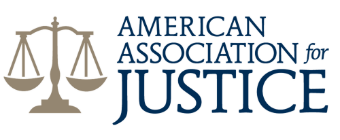While Delaware doesn't have its own robocall laws, strong federal laws protect consumers across the country from telemarketing harassment. If you receive unwanted robocalls and robotexts, but never gave your consent, your rights aren't being respected.
- You can sue for financial compensation in civil court
- Up to $1,500 in damages for each illegal call or text
- Contact our experienced robocall attorneys for a free consultation
Learn more about your legal options by filling out our online questionnaire. Find out if you have a case, then our experienced attorneys will reach out to answer any questions you have. Your consultation comes at no charge and no obligation.
Most people don't do anything about robocalls, but fighting back - pursuing compensation - sends a strong message.
"Best Attorneys Ever!" Everyone at Laurence's office was great.
It's a problem just about all of us can identify with: unwanted robocalls, text messages, and commercial faxes intruding into our daily lives. Telemarketers, debt collectors, and creditors use automated dialing systems and prerecorded messages to hound millions of Americans with unsolicited robocalls.
Fortunately, a federal law called the Telephone Consumer Protection Act (TCPA) is helping the victims of telephone harassment fight back. This law sets strict guidelines for the companies who use robocalls and allows the victims of illegal calls to recover $500 to $1,500 per violation. That means $500 to $1,500 for each and every illegal robocall, text, and fax you've received.
Does Delaware Have State Robocall Laws?
Many states have additional statewide laws for robocalls, but Delaware does not. However, because the TCPA is a federal law, you have the same right to financial compensation as citizens of all 50 states if you've received illegal robocalls.

What Kinds Of Robocalls Are Illegal?
According to the TCPA, robocalls are illegal without express written permission. This means that the person being called must give the company robocalling them consent to do so. This express written permission can be given in a few ways, including:
- A written form
- A website form
- An email
- A telephone keypress
- A voice recording
But express written permission isn't permanent. Even if you've given this permission in the past, you have the right to revoke it in any reasonable way, at any time.


Robocalls that use prerecorded messages must also provide an automated opt-out system during the message, which allows you revoke your permission to receive any future calls.
TCPA Restrictions
Other restrictions covered by the TCPA include:
- Calls may not be made before 8 am or after 9 pm, local time.
- Companies must keep a company-specific "do-not-call" list.
- Companies must also honor the national do-not-call list.
- Callers must provide their name, the name of the company they're calling for, and a telephone number and address where the company can be contacted.
- Text messages are considered the same as calls.
- Unsolicited faxes are banned.
- Violations of the TCPA are subject to $500 in damages per violation, and $1,500 for willful violations.
Filing A Robocall Lawsuit In Delaware
If you've been harassed by illegal robocalls, text messages, or unsolicited faxes, you have the right to file a lawsuit in federal court. Because compensation is awarded for each and every violation, your payout could reach as high as five figures or more. In class action lawsuits with multiple plaintiffs, damages can reach into the millions.
This means that it's very important to have information for every potentially illegal robocall, text, or fax you've received. We suggest gathering the following information:
- Call records or screenshots of every potentially illegal call
- Dates and times you received calls
- The companies that contacted you with robocalls, text messages, or unsolicited faxes
- The type of phone where you received calls (cell or landline)
- Details about the calls, such as:
- Did you ever talk to a live operator?
- Was there only a prerecorded message?
- Was an automated opt-out system provided?
- Did you receive wrong-number calls intended for someone else?
- Did you continue to receive calls after revoking consent?
- Any other details you can think of.
After you've gathered as much evidence as you can, we suggest speaking with one of our experienced Delaware robocall lawyers. We offer free consultations, so you can get a better idea of your legal rights. If you decide to file a robocall lawsuit, we'll be here to guide you each step of the way and help you fight for every penny you deserve.